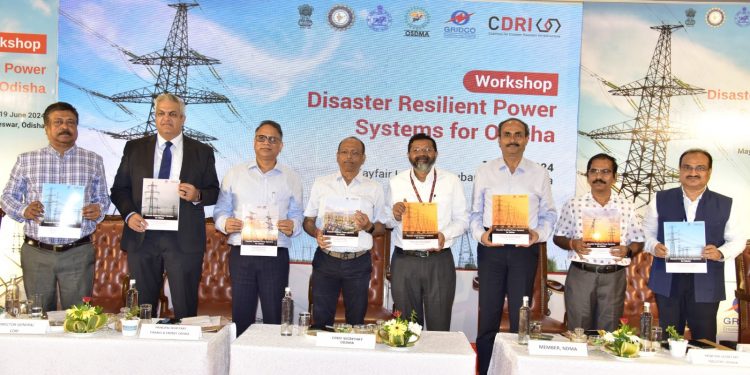Bhubaneswar: The Coalition for Disaster Resilient Infrastructure (CDRI) and the state government jointly launched a report, ‘Disaster Resilient Power Systems for Odisha,’ in an event here, Wednesday. “Heavy rains, flooding, and severe waterlogging impact uninterrupted functioning of critical power infrastructure in coastal regions during disasters” the report said. “Disruptions result in high maintenance costs, asset loss, socio-economic losses, crippled emergency services and delayed response,” it further said. CDRI’s report on resilient power infrastructure lays out a methodology for enhancing power sector resilience in coastal regions, particularly those affected by cyclones, hurricanes and floods. Joining the programme as chief guest, Chief Secretary Pradeep Kumar Jena shared his experience combating the cyclones and problems in restoration.
He added that the state learnt from these experiences and started making the power infrastructure disaster-proof. He urged the officials to make infrastructure resilient. “This small beginning by CDRI will help other coastal states in India and many countries to come up with disaster-resilient power infrastructure,” he concluded. Industries Department Principal Secretary Hemant Sharma said, “Today we have one nation, one Grid. Disaster resilience in power systems is a universal theme. The report is not just meant for Odisha but for other regions too.” Finance Department Principal Secretary Vishal K Dev said, “The state government has established a strong foundation for climate-proofing our power infrastructure, reaffirming our collective vision of fostering a future that is resilient, sustainable, and better prepared to confront the evolving threats posed by the changing environment.”
CDRI Director General Amit Prothi said, “The resilience of the power sector to extreme weather events is pivotal in safeguarding lives and livelihoods, particularly those in vulnerable regions. Recommendations from our study on climate and disaster resilient power systems can be replicated across coastal regions to enable disaster resilient power infrastructure.” According to the report, recommendations for future action will enhance resilience and ensure reliable power supply during extreme weather events and disasters. Key recommendations include enhancing codes and standards for wind zones, integrating risk assessments into financial planning, and incorporating the resilience component in policy, training and capacity-building initiatives among others.
ARINDAM GANGULY, OP







































